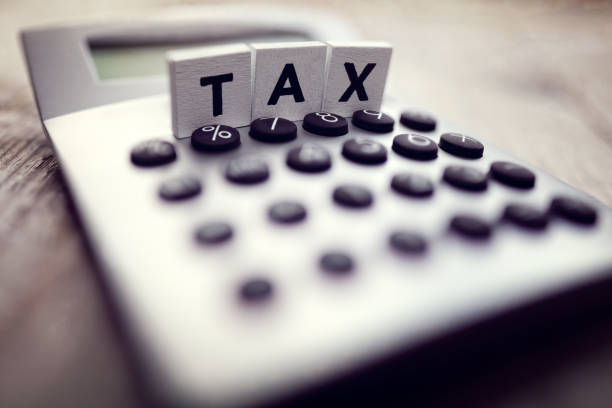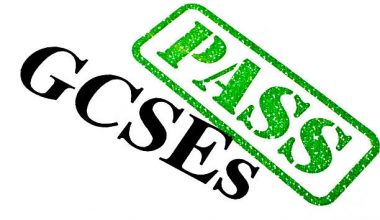While in the university, it might be exciting to have a part-time job you juggle alongside your lectures, but with that paycheck comes the big question: do students pay tax in UK?
Taxes can seem confusing, but think of them as contributions to run the country, more like paying for hospitals and roads. Now, the question is, are students exempt from these taxes?
In this article, we will talk about what student tax is, and if and how the different students in the UK pay this tax.
Table of contents
- What is Student Tax?
- Do University Students Pay Tax in the UK?
- What if my only source of income is my part-time job as a student?
- How are Students Taxed?
- What if my only source of income is my part-time job as a student?
- Are there any other circumstances where students might owe taxes?
- FAQs
- Conclusion
- References
- Recommendations
What is Student Tax?
Student tax refers to the income tax paid by individuals pursuing higher education in the United Kingdom.
While students are subject to the same tax laws as everyone else, there are specific considerations that make their tax situation unique.
In the UK, income tax is levied on your earnings, and as a student, you may have various income sources, such as part-time jobs, scholarships, or bursaries. It’s crucial to comprehend how these income streams are taxed.
But wait, are bursaries and scholarships taxable in the UK?
Read Also: What Does Tax Topic 152 Good Or Bad Mean | Full Explanation
Do University Students Pay Tax in the UK?
Yes, university students in the UK do pay tax if their income exceeds a certain threshold. The current tax year’s threshold is £12,570.
If your income surpasses this amount, you are liable to pay income tax. However, if your income is below this threshold, you won’t need to pay tax.
Read more here: Do Students Pay Tax? Answers to Commonly Asked Questions for International Students
Do full-time students pay tax UK?
The thing is, everyone who earns in the UK, students – whether full-time or part-time students in the UK pay taxes. However, students do get a break. There’s this thing called personal allowance. It’s the amount you can search year before taxes apply to you.
Now, the good news may be that this personal allowance is usually higher for full-time students than it is for part-time students and full-time workers. So, do you think that full-time students will pay tax if they earn more than the student allowance?
The answer is “maybe.” An income from your job where part-time or full-time can be taxed especially if it goes above your personal allowance limit.
Do international students pay tax UK?
Now, the tax situation for international students studying in the UK can vary based on their nationality and their visa type.
Generally, international students might not be taxed on foreign income, that is, money or income from their home country because it is considered that this is the money they use for their living expenses.
For international students who have part-time jobs in the UK, they might be taxed especially if their earnings surpass their allowance – just like full-time students.
Now, narrowing down to the international student’s nationality, some countries have had agreements with the UK government to avoid double taxation. This is because these international students are already taxed in their countries.
Also, see: Do Apprentices Pay Tax and National Insurance?
What if my only source of income is my part-time job as a student?
Having a part-time job as a student is a great way to earn some income while juggling your studies. While it may not be a lot, it’s still an important source of funds for many students.
Here are a few things you can do to make the most of your situation:
Budget wisely:
Since you have limited income, it’s crucial to create a budget and stick to it. Prioritize your expenses and avoid unnecessary spending.
This will help ensure that you have enough money for essentials like rent, food, and transportation.
Explore additional opportunities:
Consider looking for ways to supplement your income outside of your part-time job. You could explore freelance work or take up gigs that align with your skills or interests.
This can provide some extra cash and also enhance your resume.
Remember, being a student is temporary, and your financial situation will likely improve once you graduate and enter the workforce full-time.
In the meantime, stay positive, make smart financial decisions, and continue working hard towards achieving your academic goals.
Read Also: Top 30 Colleges Not Requiring Covid Vaccine For Fall & Winter |
How are Students Taxed?
Students who earn above the threshold are subject to income tax at the standard rates. These rates vary depending on your total income:
Basic Rate: If your annual income is between £12,571 and £50,270, you will pay tax at the basic rate of 20%.
Higher Rate: For incomes between £50,271 and £150,000, the higher rate of 40% applies.
Additional Rate: Earnings exceeding £150,000 are taxed at the additional rate of 45%.
Tax-Free Allowances
One advantage for students is the availability of tax-free allowances. These deductions reduce your taxable income. Some common tax-free allowances include:
Personal Allowance: As of the current tax year, the personal allowance is £12,570. This means the first £12,570 of your income is tax-free.
Student Loan Repayments: If you have a student loan, repayments are based on your income, and they typically start once you earn above a certain threshold.
Read Also: Should College Be Free: YES/NO? Pros And Cons
What if my only source of income is my part-time job as a student?
Having a part-time job as a student is a great way to earn some income while balancing your studies. It’s important to make the most of this opportunity and manage your finances wisely. Here are a few suggestions:
Firstly, create a budget to track your expenses and ensure that you’re not overspending. Prioritize your necessities such as rent, food, and transportation, and allocate a portion of your income towards savings if possible.
Secondly, consider exploring additional ways to supplement your income. This could be through freelancing or taking up odd jobs during weekends or holidays. Utilize your skills and interests to find opportunities that align with your schedule.
Lastly, don’t hesitate to seek out financial assistance or scholarships specifically designed for students. Many universities offer grants or bursaries that can help alleviate some financial burdens.
Remember, it’s essential to prioritize both your education and financial stability during this phase of life.
Read Also: What Happens During College Orientation? Guiding Tips
Are there any other circumstances where students might owe taxes?
Yes, there are a few other circumstances where students might owe taxes. One common situation is if a student has earned income from a part-time job or internship.
If their total income exceeds the minimum threshold set by the IRS, they may be required to file a tax return and potentially owe taxes.
Students need to keep track of their earnings and consult with a tax professional or use online resources to determine if they need to file.
Additionally, students who receive scholarships or grants may also have tax obligations. While some scholarships are tax-free, others may be considered taxable income if they cover expenses beyond tuition and required fees.
Students must understand the specific tax rules related to their scholarships and grants and report them accurately on their tax returns.
It’s not just full-time employees who need to worry about taxes; students too may find themselves owing taxes in certain circumstances.
Staying informed about income thresholds, and scholarship regulations, and seeking professional advice when needed can help ensure that students fulfill their tax obligations correctly.
Read Also: What to Wear to a College in the USA: Dress Code Tips & Ideas
FAQs
Yes, you can claim tax refunds if you’ve overpaid your taxes during the tax year. This often happens if you’ve been taxed at a higher rate than necessary. Keep track of your income and tax deductions to ensure you’re not paying more than you owe.
Many students work part-time to support themselves during their studies. If your total income from part-time work and other sources exceeds the tax threshold, you will need to pay income tax. Ensure you understand your tax obligations and report your income accurately.
Scholarships and bursaries intended for your education are typically tax-free. However, if you receive additional funds for living expenses or other purposes, they may be subject to taxation. Always clarify the tax status of any financial aid you receive.
Reporting your income and paying tax is a straightforward process. You’ll need to register for self-assessment with HM Revenue and Customs (HMRC) and submit an annual tax return. It’s essential to keep thorough records of your income and expenses throughout the tax year.
If you have multiple income sources, such as part-time work and a scholarship, you must accurately report each source of income to HMRC. Failure to do so can result in penalties and legal consequences.
Absolutely. Many students seek the assistance of tax professionals or use tax software to ensure their taxes are filed correctly. This can help you maximize deductions and minimize your tax liability.
Conclusion
Navigating the world of student taxation in the UK may seem complex, but with the right information and guidance, you can fulfill your tax obligations without stress.
Remember, if your income exceeds the threshold, you will need to pay income tax, but there are also numerous tax-free allowances and deductions available to students.
Stay informed, keep accurate records, and seek professional assistance if needed to ensure a smooth tax experience during your university journey.
References
- nidirect.gov.uk – Students and taxation
- gov.uk – Students and taxation in the UK
- litrg.org.uk – Do students pay tax?
Recommendations
- Do University Students Pay for Prescriptions? Tips
- Do University Students Pay For The Dentist?
- How Can I Get An MBA in Taxation Online?
- What to Wear to a College in the USA: Dress Code Tips & Ideas
- What Happens During College Orientation? Guiding Tips
- Should College Be Free: YES/NO? Pros And Cons
- Top 30 Colleges Not Requiring Covid Vaccine For Fall & Winter |
- Top 20 Pet-Friendly Colleges in the World |
- 45 Gorgeous Dorm Room Ideas You’ll Want to Copy
- 35 Best Dorm Gifts College Students Will Love




